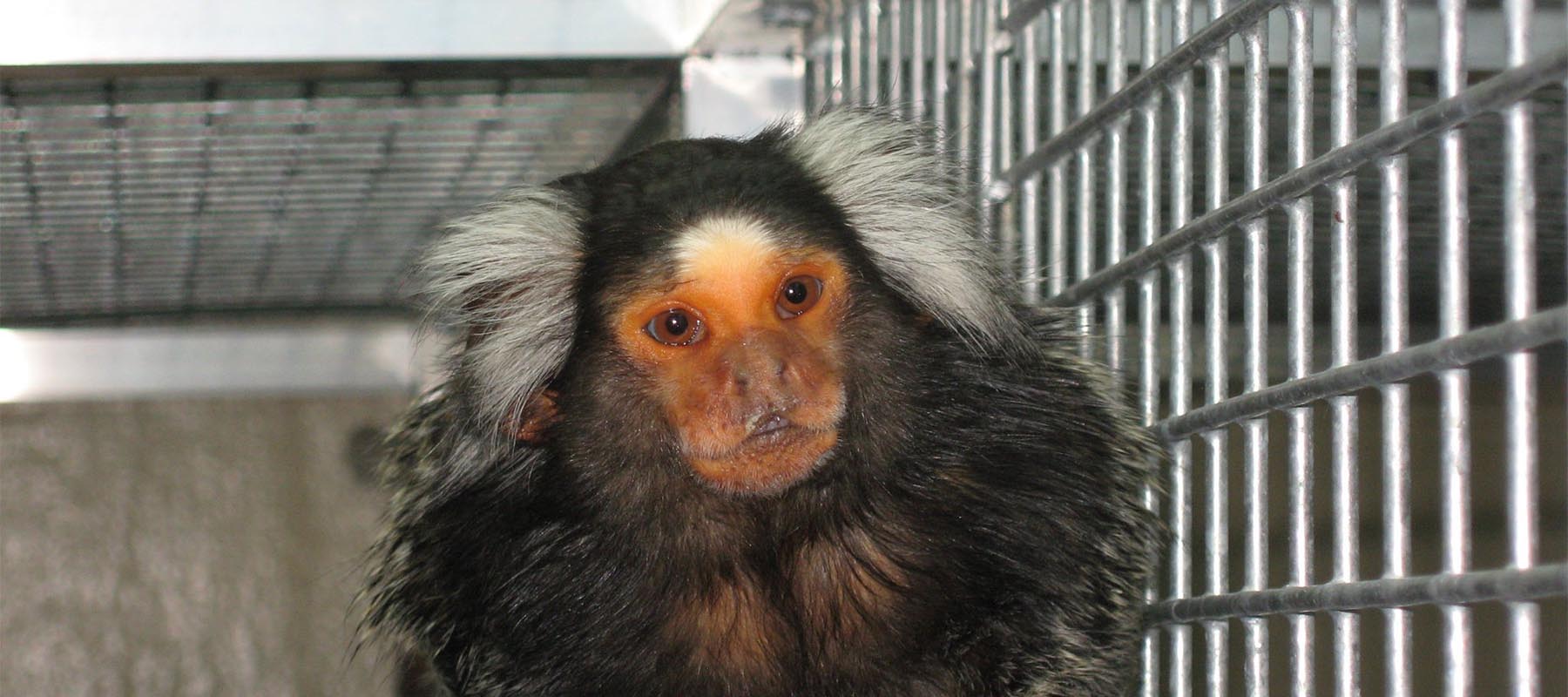
Dr Lisa Riley is a lecturer in animal welfare and a member of the University's Centre for Animal Welfare. She is a primatologist who has studied wild and captive primates for many years. As the Labour party this week restated its commitment to a total ban on keeping primates as pets, Lisa discusses the problems of primate pet-keeping and considers what can be done to relieve primate suffering.
Do you know it is entirely legal to keep a primate as a pet in the UK, even if it is an endangered species? An estimated 5000 primates currently live in UK homes as pets. Most are marmosets but squirrel monkeys, capuchins and spider monkeys, as well as lemurs and other species are kept.
In 2014 I was part of a campaign group which asked the government to review their policy on primate pet keeping amid a large increase in primate-related calls to welfare organisations. Despite a host of recommendations from the EFRA Select Committee, DEFRA (Department for Environment, Food and Rural Affairs) concluded that there was adequate legal protection for primates given the Animal Welfare Act 2006 and the Code of Practice for the Welfare of Privately Kept Non-Human Primates; the latter is widely criticised for being too general and poorly publicised.
The Labour party has recently announced its intention to ban the keeping of pet primates as part of a proposed overhaul of animal welfare legislation and action. But what are the issues of keeping primates as pets?
Quite simply, primates are not domestic animals - they have not been selectively bred to tolerate close human proximity, and their complex psychological and physical needs cannot be met in a household situation. As pets they suffer social isolation, poor health, depression and psychosis, performing self-harming behaviours and other abnormalities. With a lifespan of 30 years for some species life as a pet is certainly not a barrel of monkeys! More of a life sentence.
Typically, when kept as a pet, small monkeys like marmosets are housed in barren bird cages, on their own with poor UV light and vitamin D provision. This neotropical primate is a specialist tree-gum feeder - a diet especially difficult to replicate in captivity - and has a high demand for both UV light and vitamin D. When rescued, they present with metabolic bone disease and poor body condition as their bones leech calcium and lose density. Their tails are often broken, and vertebrae fused causing pain and reducing movement and quality of life. Pet primates are often removed from their mothers prematurely and so cannot learn the life skills they need to cope with future challenges. Vocalisations, facial expressions and behaviours need to be learnt in primate society. Pet primates have little opportunity to do this when kept alone.
Owners, even if they mean well and love their primate, typically neglect them by not understanding their welfare needs. As a primatologist I understand the allure of primates - they are cute, affectionate, child-like and just what people find appealing about animals and pets particularly but there are moral questions to address here: primates are wild animals, no matter how tame a seller claims the primate is. It is a human need for companionship, ownership or one-upmanship that fuels the trade in primates. Is this acceptable? For me a primate is a sentient being aware of both joy and suffering, an intriguing animal with sophisticated cognition that commands our respect and protection.
So, what can be done? Banning the private keeping and trade in primates will safeguard primate welfare but a 'grandfather clause' will be needed where those already in the pet industry are provided for under a licencing system. This would need careful consideration and active enforcement to be successful. Owners need educating on the legal responsibilities of keeping and trading primates currently and the standard of care must be raised.
Primates find it extremely difficult to overcome hardships in early life, but if given opportunities they can learn to engage with those opportunities and their welfare can be improved. Several years ago, I was involved in an RSPCA prosecution case where an Inspector was called to rescue a squirrel monkey from a back office of a business. The Inspector found Charlie (pictured above), a sexually mature male kept in a dark, dirty barren parrot cage, that was unsafe and unsuitable. Charlie was in very poor physical condition, scrawny and filthy. His owner was successfully prosecuted, and Charlie was rehomed with Monkey World Ape Rescue Centre in Dorset where he lives today as part of a dynamic social group. His dull orange colouration brightened gradually, and his condition improved. He now can act like a primate, not like a pet.
Press Office | +44 (0) 1962 827678 | press@winchester.ac.uk | www.twitter.com/_UoWNews
Back to media centre